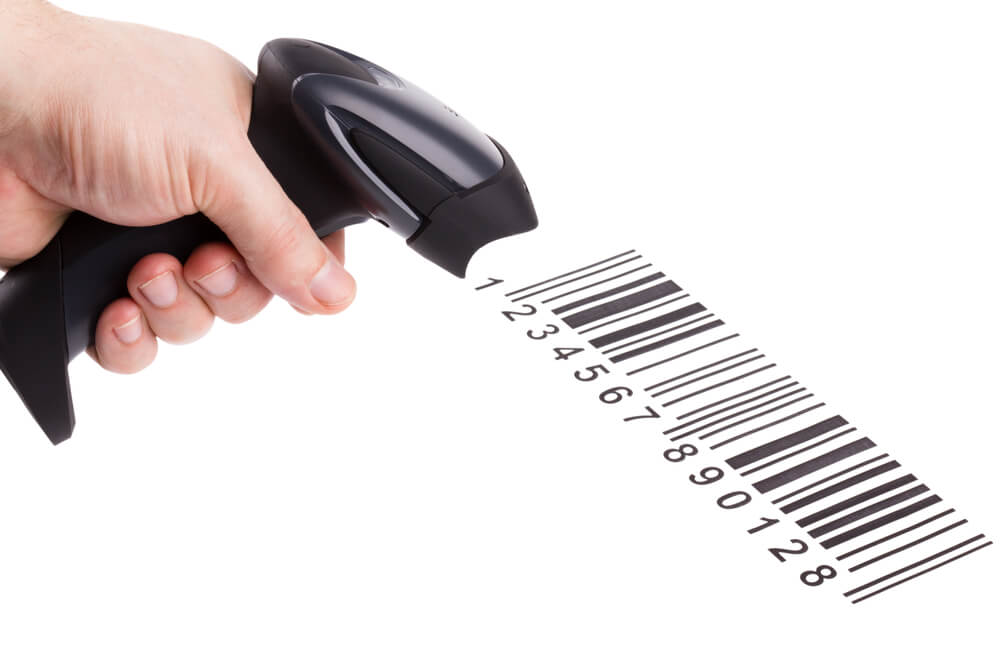USB-Compatible Barcodes Scanners for Seamless Setup
Choosing the Right Barcode Scanner for Your Business Needs
Picking the suitable barcode scanner for your company needs a nuanced understanding of your certain operational needs and environmental conditions. Factors such as scanner type, rate, and compatibility with existing systems play a crucial function in determining the appropriate choice.
Understanding Barcode Scanner Kind
When it involves picking a barcode scanner, recognizing the different kinds readily available is important for conference certain company needs. Barcode scanners can be categorized right into a number of kinds, each designed for various applications and settings.
Handheld scanners are the most usual, offering mobility and simplicity of use, making them ideal for retail and supply management. They typically connect through USB or Bluetooth, supplying versatility in operation. Fixed-mount scanners, on the other hand, are made for high-volume scanning applications, often discovered in assembly lines or checkout counters. These scanners are placed in a stationary placement, permitting quick scanning of multiple things in sequence.
One more kind is the mobile computer system, which combines scanning capabilities with calculating power. These devices are perfect for field operations or storage facility management, allowing data collection and real-time stock monitoring. In addition, there are industrial scanners that are constructed to stand up to extreme atmospheres, such as severe temperature levels or direct exposure to dust and wetness.

Secret Functions to Take Into Consideration
What necessary attributes should companies prioritize when choosing a barcode scanner? Primarily, scanning rate is essential, as faster scanners improve operational performance, specifically in high-volume settings. The scanner's capability to review numerous barcode formats is additionally vital; guarantee it supports preferred kinds like QR codes, UPC, and Code 128 to accommodate diverse inventory products.
Resilience is an additional key function, especially for services in tough settings. Try to find versions that are built to endure declines, dust, and moisture. In addition, think about the connection options available; whether you prefer USB, Bluetooth, or Wi-Fi, the best connectivity can improve assimilation with existing systems.

Evaluating Your Company Environment
To successfully choose a barcode scanner, businesses should analyze their certain functional setting. This analysis includes assessing the physical layout of the workspace, the nature of the items being scanned, and the regular conditions under which scanning happens. For my website example, a retail environment might need portable scanners that can quickly process purchases at the check out, while a warehouse setting might take advantage of ruggedized scanners developed to endure harsher problems.
Furthermore, take into consideration the volume of scanning needed. High-throughput atmospheres may demand sophisticated scanning modern technologies, such as fixed-position scanners or smart phones that can operate efficiently in fast-paced scenarios. The assimilation capabilities with existing stock management systems additionally play an essential role; guarantee the selected scanner can seamlessly link with software application systems in usage.
Furthermore, analyze the possibility for growth and scalability. A scanner that satisfies existing needs might not be enough as service expands. By thoroughly examining these elements, companies can select a barcode scanner that not only satisfies instant needs yet likewise sustains lasting operational effectiveness and adaptability. This calculated approach ultimately contributes to smoother procedures and enhanced efficiency.
Budgeting for Your Scanner
Having actually evaluated the operational environment and determined the specific demands for a barcode scanner, the next action includes careful budgeting to ensure a wise financial investment. Establishing a spending plan starts with determining the overall expenses associated with the scanner, including initial acquisition price, functional expenditures, and possible upkeep costs.
When selecting a barcode scanner, take into consideration the series of available choices, from handheld tools to fixed-position scanners, as rates can differ dramatically. It is important to stabilize cost with capability; choosing an extra cost effective model may lead to enhanced operational inadequacies if it does not fulfill your link service requirements.
Along with the equipment, variable in prices related to software application, training, and prospective upgrades. While it may be tempting to minimize in advance expense, spending in a quality scanner that aligns with your functional needs can produce long-term cost savings with improved efficiency and reduced downtime.
Lastly, think about the her comment is here total price of ownership, which encompasses the scanner's lifespan and potential resale worth. By carefully preparing your spending plan, you can make certain that your investment in a barcode scanner will certainly improve your operational efficiency and monetary efficiency.
Integration With Existing Equipment
Integrating a barcode scanner with your existing systems is important for optimizing its efficiency and guaranteeing seamless procedures. barcodes scanners. A well-integrated scanner boosts process effectiveness, reduces errors, and speeds up information processing. When selecting a barcode scanner, consider compatibility with your existing software program and hardware infrastructure, including your stock monitoring systems, point-of-sale (POS) systems, and enterprise source preparation (ERP) options
Examine whether the scanner makes use of typical methods such as USB, Bluetooth, or Wi-Fi, which can facilitate very easy combination. Additionally, examine whether the scanner's software program provides APIs or SDKs that enable for customization and combination with proprietary systems. This is particularly important for businesses with one-of-a-kind operational requirements.
Furthermore, think about the scalability of the scanning solution. As your organization expands, your systems should have the ability to fit additional scanners and handle increased information volumes without substantial reconfiguration. Inevitably, spending in a barcode scanner that effortlessly incorporates with your existing systems will yield lasting advantages, boosting accuracy, efficiency, and overall performance within your operations. Put in the time to thoroughly examine your combination requires before buying decision.

Verdict
To conclude, selecting a proper barcode scanner necessitates an extensive evaluation of different factors, including scanner kinds, crucial functions, and the specific service setting. Correct budgeting for both acquisition and operational expenses is critical, together with ensuring compatibility with existing systems. By thoroughly taking into consideration these elements, businesses can improve performance and performance, ultimately causing improved operational end results. The best barcode scanner works as an essential tool in streamlining processes and assisting in reliable stock management.